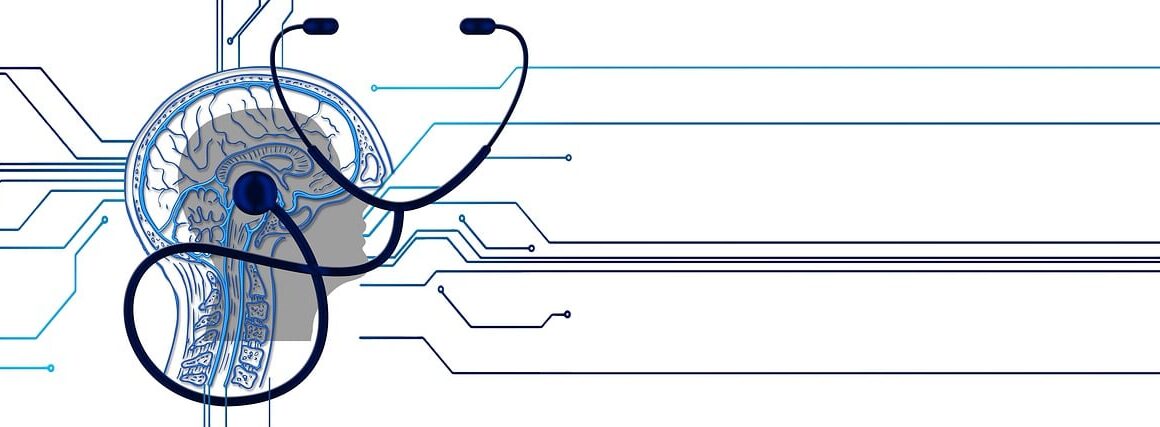The Role of Functional Training in Enhancing Cognitive Flexibility
Functional training has gained significant attention for its role in physical fitness, but its impact on cognitive flexibility is equally impressive. Cognitive flexibility refers to the brain’s ability to adapt thinking strategies in response to new information and changing environments. Engaging in functional training—exercises that mimic everyday activities—can stimulate both body and mind. The incorporation of dynamic movements aids in the development of neural pathways, enhancing mental agility. Furthermore, this training focuses on multitasking, which requires the brain to switch between different tasks effectively. By challenging the mind alongside the body, individuals can improve their cognitive capabilities. In addition, studies suggest that increased physical activity positively correlates with cognitive function and mental health. Regular engagement in functional training can lead to better problem-solving skills and decision-making abilities. This holistic approach to fitness not only improves physical health but also significantly boosts mental resilience, making it a valuable aspect of personal development. To reap these benefits, incorporating functional training into daily routines can serve as a gateway to attaining a more agile and flexible mind, essential in today’s fast-paced world.
Cognitive flexibility is critical in navigating daily challenges, and functional training nurtures this skill through various exercises. These workouts often involve complex physical tasks requiring coordination, balance, and adaptability. Participants learn to execute movements that challenge their cognitive processing while simultaneously enhancing their physical strength. For instance, lifting weights while balancing on one leg or performing a series of rapid movements can create cognitive challenges, requiring quick adjustments and modifications in strategy. By engaging in this type of training, individuals enhance their ability to process multiple streams of information and make quick decisions. Moreover, functional training routines foster a sense of achievement and self-efficacy, motivating individuals to continue pushing their limits. Such motivation is crucial as it encourages ongoing participation in mental-stimulating activities. The combination of physical exertion and mental engagement fosters an environment that promotes learning and growth. In summary, the interplay between functional training exercises and cognitive flexibility enhances overall mental health, leading to increased adaptability in various life situations. This training approach is not just about physical fitness; it is a pathway toward improved cognitive performance and resilience.
Functional Training Methods and Cognitive Engagement
Several methods within functional training specifically target cognitive engagement, making them particularly effective in enhancing cognitive flexibility. High-intensity interval training (HIIT), circuit training, and dynamic balance exercises are excellent examples of techniques that challenge both the body and mind. HIIT combines short bursts of intense effort with periods of rest, pushing participants to adapt quickly to varying exertion levels. Circuit training involves moving through several exercise stations, requiring individuals to maintain focus and mental sharpness throughout the routine. Moreover, balance-focused exercises—such as single-leg stands or stability ball work—enhance proprioception while stimulating cognitive awareness. These methods can be tailored to suit a range of fitness levels and goals, ensuring inclusivity and accessibility. In addition, incorporating cognitive tasks—like counting reps, following choreographed movements, or solving puzzles during workouts—can provide further cognitive stimulation. By varying the types of exercises, participants engage their minds actively while working out, which is beneficial for cognitive development. As a result, functional training emerges as a multifaceted approach to fitness, supporting both physical health and mental agility, essential for sustaining an active and fulfilling lifestyle.
Moreover, the supportive community environment found in functional training classes contributes positively to mental health. Group training fosters social connections, providing emotional support and encouragement among participants. Engaging with others who share similar fitness goals can enhance motivation and accountability, driving individuals to challenge their limits consistently. The camaraderie found in these settings can reduce feelings of isolation and promote a sense of belonging, crucial aspects of mental wellness. Furthermore, sharing experiences within a group context enhances cognitive engagement, as discussions about techniques, challenges, or successes encourage critical thinking and problem-solving. Such exchanges can stimulate new ideas and strategies, reinforcing cognitive flexibility as individuals adapt to different perspectives. Additionally, instructors can incorporate mindfulness practices within workouts, promoting awareness of movements and breathing. This combination of physical and mental exertion fosters an enriched training atmosphere where cognitive and emotional growth flourishes. By building a supportive community and encouraging social interaction, functional training transcends mere physical activity, delivering holistic benefits for enhanced cognitive flexibility and overall mental health. Such an approach cultivates resilience, essential for navigating life’s complexities.
Scientific Evidence Supporting Functional Training Benefits
Research highlights the positive effects of functional training on cognitive flexibility and overall mental health. Numerous studies indicate a clear correlation between increased physical activity and improved cognitive function. Engaging in functional training not only benefits physical health metrics but also enhances mental performance, particularly in areas such as memory, attention, and problem-solving. Functional exercises, involving various movement patterns, stimulate brain regions responsible for cognitive processing and coordination. Additionally, a meta-analysis highlighted how resistance training improves executive function, showcasing that individuals engaging in functional exercises perform better in cognitive tasks. Interestingly, the participant’s age does not solely dictate these cognitive benefits; both young and older adults show measurable improvements in mental agility and flexibility. As individuals remain physically active through functional training, they experience a slower cognitive decline over time, crucial for long-term mental health. Importantly, these findings strengthen the argument for incorporating functional training into mental health strategies. The combination of physical and cognitive stimulation promotes a comprehensive approach to mental wellness, demonstrating tangible benefits for individuals across various demographics. Emphasizing these benefits can encourage more people to recognize the value of functional training.
Additionally, functional training can increase resilience through various stress-relief mechanisms. Physical activity stimulates the release of endorphins, the body’s natural mood lifters that contribute to an overall sense of well-being. This biochemical reaction directly impacts mood, reducing anxiety and improving emotional stability. Beyond the physiological responses, functional training helps individuals develop coping strategies for managing stressors effectively. Through persistent training and the achievement of fitness goals, participants cultivate a sense of empowerment, enabling them to navigate life’s challenges with greater resilience. Furthermore, exercises requiring mental focus, such as coordination drills or agility training, promote present-moment awareness, which is crucial for managing stress and enhancing mental clarity. Functional training’s multifaceted approach enables participants to find enjoyment in movement, which can serve as a powerful antidote to stress. This enjoyable atmosphere can deter mental fatigue and increase motivation levels, ensuring ongoing participation. Cultivating resilience through functional training empowers individuals to face not only physical challenges but also mental obstacles. This holistic approach reinforces the valuable connection between fitness and mental health, offering an effective strategy for enhancing cognitive flexibility and overall emotional well-being.
Incorporating Functional Training into Daily Life
Incorporating functional training into daily routines can significantly boost cognitive flexibility and overall well-being. Even small adjustments, such as choosing to take the stairs or performing body-weight exercises at home, can gradually enhance cognitive engagement and physical fitness. Incorporating quick workouts during breaks throughout the day can encourage individuals to stay active and mentally stimulated. Group classes at local gyms or community centers can provide the motivation to participate regularly, thus making functional training enjoyable and social. Individuals can also explore hiring a personal trainer to guide them through functional exercises, ensuring proper techniques while maximizing cognitive benefits. Adapting workouts to include elements of fun, such as games or challenges, can maintain interest and engagement. Furthermore, families can make functional training a bonding experience; activities including outdoor games, yoga sessions, or obstacle courses can turn fitness into family fun. This not only fosters relationships but also ingrains healthful habits in younger generations. Overall, including functional training in daily life can pave the way for lasting improvements in cognitive flexibility and overall mental health, making it an essential part of maintaining both physical and mental well-being.
In conclusion, functional training represents a powerful tool for enhancing cognitive flexibility and promoting overall mental health. Through its unique combination of physical exercise and cognitive challenges, functional training offers benefits that extend far beyond traditional workouts. The diverse techniques involved in functional training ensure that individuals remain engaged physically and mentally, promoting adaptability and resilience. Moreover, the supportive community aspect of functional training encourages social connections, enhancing emotional well-being and further supporting cognitive flexibility. Scientific evidence backs these claims, demonstrating measurable improvements in cognitive function through regular functional training participation. As people increasingly acknowledge the interplay between physical health and mental wellness, functional training’s importance cannot be overstated. By integrating functional training into daily routines, individuals can improve their resilience and better navigate life’s challenges. This holistic approach serves to empower individuals while enhancing their cognitive capabilities, skills essential in today’s ever-evolving landscape. Thus, functional training emerges as an invaluable strategy for anyone looking to enrich their mental and physical health, promoting a lifestyle that embraces both fitness and cognitive agility, essential for comprehensive well-being.


